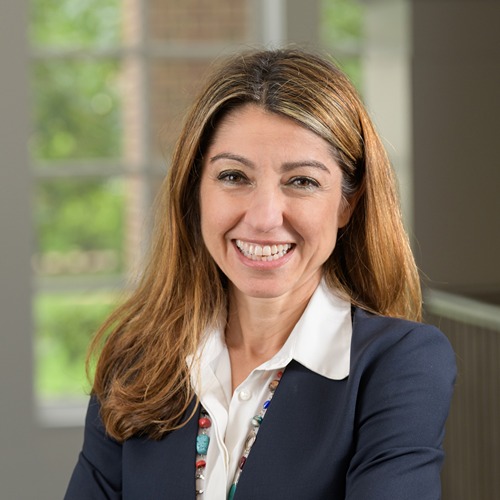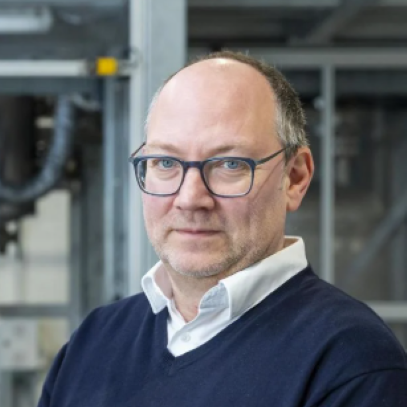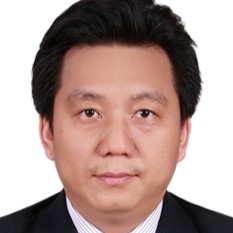
Organized by Tianjin University, Tianjin Normal University, Xinjiang University, Haihe Laboratory of Sustainable Chemical Transformations, Nature Chemical Engineering, Nature Energy, Nature Catalysis, Nature Sustainability and Nature.
Achieving a world with net-zero greenhouse gas emissions requires the chemical industry to develop processes that balance efficiency, environmental impact, scalability and economic viability. Advancements in chemical process design, system optimization, and sustainable resource utilization are key to overcoming these challenges and accelerating progress toward a net-zero future.
This two-day, single-session conference will explore the role of chemical processes in achieving net-zero emissions through a series of talks and panel discussions led by leading international scientists. We aim to foster an open and collaborative atmosphere, encouraging the exchange of ideas among researchers working on the development and assessment of key chemical processes. Topics will provide a holistic overview of chemical process design, including the production of green hydrogen and alternative fuels, sustainable reaction engineering and separation processes, and carbon capture and utilization, with a focus on their role in supporting a sustainable, net-zero future.
Event details
Speakers

André Bardow
ETH Zurich, Switzerland
André Bardow has been full professor for Energy and Process Systems Engineering at ETH Zurich since 2020. Previously, he was a professor and head of the Institute of Technical Thermodynamics at RWTH Aachen University (2010-2020) and associate professor at TU Delft (2007-2010). He was also in part-time director of the Institute for Energy and Climate Research (IEK-10) at Forschungszentrum Jülich, Germany (2017-2022). He was a visiting professor at the University of California, Santa Barbara (2015/16). He earned his Ph.D. degree at RWTH Aachen University.
Prof. Bardow is a fellow of the Royal Chemical Society and chaired the Technical Committee for Thermodynamics of VDI – The Association of German Engineers from 2016 to 2024. He received the Recent Innovative Contribution Award of the CAPE-Working Party of the European Federation of Chemical Engineering (EFCE) in 2019, and the PSE Model-Based Innovation (MBI) Prize by Process Systems Enterprise in 2018. He was the first recipient of the Covestro Science Award. He received the Arnold-Eucken-Award of the VDI-Society for Chemical Engineering (GVC) and was recognized as a Highly Cited Researcher by Clarivate in 2024 . He is the recipient of RWTH’s “FAMOS für Familie” award for family-friendly leadership, and of teaching awards at RWTH and TU Delft.

Sai Chen
Tianjin University, China

Ib Chorkendorff
Technical University of Denmark, Denmark
Ib Chorkendorff is Professor in Heterogeneous Catalysis at DTU-Physics. He earned his PhD in 1985 Odense University Denmark, and after a post-doc at University of Pittsburgh, USA, he was employed in 1987 at DTU where he became full professor in 1999. From 2005-2016 he was director of Danish National Research Foundation Center for Individual Nanoparticle Functionality (CINF) and from 2016 he has been director of The Villum Center for the Science of Sustainable Fuels and Chemicals (V-SUSTAIN). He was elected Fellow of The Academy for Technical Sciences in 2001 and member of the Royal Danish Academy of Sciences and Letters in 2018. He has authored or coauthored more than 460 scientific papers, 23 patents and one textbook “Concepts of Modern Catalysis and Kinetics”. He has since 2017 been listed as a Highly Cited Researcher (ISI) (top 1% in the field). Ib Chorkendorff’s research activities focus on finding new catalysts for improving sustainable energy production/conversion and for environmental protection. He is co-founder of three start-up companies RENCAT APS, HPNOW APS and Spectroinlets APS and has received numerous awards, latest the Villum Kann Rassmussen Annual Award (2021), which is the most prestigious award in Denmark and in 2022 The Eni Award: Energy Frontiers Prize.

Marianthi Ierapetritou
University of Delaware, USA
Marianthi Ierapetritou is the Bob and Jane Gore Centennial Chair Professor in the Department of Chemical and Biomolecular Engineering at University of Delaware. Prior to that she has been a Distinguished Professor in the Department of Chemical and Biochemical Engineering at Rutgers University. During the last year at Rutgers University, she led the efforts of the university advancing the careers in STEM for women at Rutgers as an Associate Vice President of the University.
Dr. Ierapetritou’s research focuses on the following areas: 1) process operations; (2) design and synthesis of flexible production systems with emphasis on pharmaceutical manufacturing; 3) energy and sustainability process modeling and operations including biomass conversion and plastics upcycling and recycling; and 4) modeling of biopharmaceutical production. Her research is supported by several federal (FDA, NIH, NSF, ONR, NASA, DOE) and industrial (BMS, J&J, GSK, PSE, Bosch, Eli Lilly) grants.
Among her accomplishments are the 2025 Margaret Hutchinson Rousseau Pioneer Award for Lifetime Achievement by a Woman Chemical Engineer, 2025 Sargent Medal, the 2024 AIChE Excellence in Pharmaceutical Process Development Award, the 2024 College of Engineering Award for Excellence in Service and Community Engagement, the 2022 AICHE Excellence in Process Development Research Award, the appointment as the Gore Centennial Chair Professor in 2019, the promotion to distinguished professor at Rutgers University in 2017, the 2016 Computing and Systems Technology (CAST) division Award in Computing in Chemical Engineering which is the highest distinction in the Systems area of the American Institute of Chemical Engineers (AIChE), the Award of Division of Particulate Preparations and Design (PPD) of The Society of Powder Technology, Japan; the Outstanding Faculty Award at Rutgers; the Rutgers Board of Trustees Research Award for Scholarly Excellence; and the prestigious NSF CAREER award. She has served as a Consultant to the FDA under the Advisory Committee for Pharmaceutical Science and Clinical Pharmacology, elected as a fellow of AICHE and as a director in the board of AIChE. She has more than 350 publications and has been an invited speaker to numerous national and international conferences.
Dr. Ierapetritou obtained her BS from The National Technical University in Athens, Greece, her PhD from Imperial College (London, UK) in 1995 and subsequently completed her post-doctoral research at Princeton University (Princeton, NJ).

Andrew Livingston
Queen Mary University of London, UK
Andrew Livingston (AGL) (FREng, FRS, CEng, FIChemE) is Professor of Chemical Engineering and Vice Principal Research and Innovation at Queen Mary University of London, UK. Research expertise in creating membranes for precise molecular separations in organic systems and the application of these membranes in chemical and pharmaceutical processes. Graduated Chemical Engineering from University of Canterbury (NZ), worked 3 years in industry, then studied for PhD in Chem Eng from Cambridge UK. Following PhD spent 30 years at Imperial College Dept Chemical Engineering including HoD 2008-2016; obtained MSc in Economics at LSE in 1993. Academic lead then interim director of Rosalind Franklin Institute, 2017-2019. European Research Council Advanced Grant holder 2017-2023. 300 plus publications including Science (2015, 2020, 2022) and Nature (2022), 40 plus patent applications filed. His research has been licensed and used by startups. He founded Membrane Extraction Technology Ltd in to commercialise organic solvent nanofiltration membranes, with successful exit on acquisition by Evonik Industries. Then founded Exactmer Ltd to commercialise exact polymer synthesis, including oligonucleotides, peptides, ExactPEG and ADC linkers using the Nanostar Sieving platform. AGL has won numerous awards; elected Fellow of the Royal Academy of Engineering in 2006 and Fellow of the Royal Society in 2022.

Christos Maravelias
Princeton University, USA
Christos Maravelias is the Chair of the Department of Chemical and Biological Engineering, and the Anderson Family Professor in Energy and the Environment at Princeton University. His research interests lie in the general area of process and energy systems engineering and optimization. Specifically, he is studying production planning and scheduling, supply chain optimization, and energy systems synthesis and analysis with emphasis on renewable energy technologies. He has authored a research monograph on Chemical Production Scheduling and co-authored more than 200 journal articles. He is the recipient of numerous awards including the David Smith and Outstanding Young Researcher awards from the CAST Division of AIChE, the Sustainable Engineering Forum research Award from AIChE, and the Production and Operations Management Society Applied Research Challenge Award.
Group website: https://cbe.princeton.edu/people/christos-maravelias

Bert Sels
KU Leuven, Belgium
Professor Bert F. Sels is a distinguished full professor at KU Leuven and serves as the director of the CSCE research group. He obtained his Ph.D. in 2000, with a specialization in heterogeneous oxidation catalysis, and subsequently conducted postdoctoral research on the activation of small molecules such as methane and nitrous oxide.
His current research centers on heterogeneous catalysis, with particular emphasis on zeolite-based systems and addressing key challenges in industrial organic and environmental catalysis. His work bridges fundamental science—including kinetics and active site characterization—with applied research focused on process upscaling. A central theme throughout his research is advancing carbon circularity through the utilization of renewable carbon sources such as biomass, carbon dioxide, and plastic waste.
Professor Sels is a strong proponent of green chemistry and emphasizes the safe and sustainable use of chemicals, particularly through the non-regrettable substitution of hazardous substances.
Throughout his career, he has published over 400 peer-reviewed articles and holds more than 40 patents. Since 2021, he has been recognized as a Highly Cited Researcher by Clarivate.
In addition to his academic and research achievements, Professor Sels is actively involved in the scientific community. He is co-chair of the Catalysis Commission of the International Zeolite Association (IZA), co-founder of the European Research Institute of Catalysis (ERIC), and a member of the European Academy of Sciences and Arts.

Laura Torrente-Murciano
University of Cambridge, UK
Laura Torrente is a Professor in Reaction Engineering and Catalysis at the University of Cambridge where she leads the Catalysis and Process Integration group. Her work involves the development of sustainable chemical processes combining catalysis development, reaction engineering and process integration. She is a member of the UK Catalysis Hub and the Interdisciplinary centre Energy@Cambridge.
Her research is being supported by a number of public bodies and companies, having been awarded one of the most prestigious European Fellowships, an ERC Consolidator grant, to continue her work on green ammonia. In 2020, she co-authored a policy briefing document commissioned by the Royal Society entitled “Ammonia: zero-carbon fertiliser, fuel and energy store” and in 2024 a new one on “Defossilising the chemical industry”

Jennifer Wilcox
University of Pennsylvania, USA
Jennifer Wilcox is Presidential Distinguished Professor of Chemical Engineering and Energy Policy at the University of Pennsylvania, with a home at the Kleinman Center for Energy Policy and the School of Engineering and Applied Science. At Penn, she oversees the Clean Energy Conversions Lab.
Wilcox also works with Isometric as their Chief Scientist and is a senior fellow at the World Resources Institute, where she leverages her expertise to help accelerate policy support and investments in research, development, and deployment of industrial decarbonization and carbon removal solutions in order to achieve net-zero emissions by 2050. Most recently, Wilcox served as Principal Deputy Assistant Secretary for the Office of Fossil Energy and Carbon Management at the Department of Energy.
Wilcox’s research takes aim at the nexus of energy and the environment, developing both mitigation and adaptation strategies to minimize negative climate impacts associated with society’s dependence on fossil fuels. This work carefully examines the role of carbon management and opportunities therein that could assist in preventing 2° C warming by 2100. Carbon management includes a mix of technologies spanning from the direct removal of carbon dioxide from the atmosphere to its capture from industrial, utility-scale exhaust streams, followed by utilization or reliable storage of carbon dioxide on a timescale and magnitude that will have a positive impact on our current climate change crisis.
Funding for her research is primarily sourced through the National Science Foundation, Department of Energy and the private sector. She has served on a number of committees including the National Academy of Sciences and the American Physical Society to assess carbon capture methods and impacts on climate. She is currently a member of the Energy & Environmental Science Journal Editorial Board. She is the author of the first textbook on carbon capture and, most recently, the CDR Primer. In 2023, she was named one of the TIME 100 Climate.

Sui Zhang
National University of Singapore (NUS), Singapore
Dr Sui Zhang is currently an Associate Professor at the Department of Chemical and Biomolecular Engineering at National University of Singapore (NUS). She received her Bachelor degree from Fudan University in 2008, and her PhD degree from NUS in 2012. After that, she worked as postdoc researcher at NUS and MIT until 2017. She leads the Advanced Membrane Lab, with > 100 journal publications and H-index 47. She is now the editor for Desalination and Water Treatmnet, and Editorial Board Member for journals such as npj Clean Water, Journal of Membrane Science and Advanced Membranes. She has received a number of awards in recent years such as 2022 Journal of Material Chemistry A Emerging Investigator Award, 2022 NUS Engineering Young Researcher Award and 2021 AIChE Singapore Outstanding Young Faculty Award.

Tao Zhang
Dalian Institute of Chemical Physics, Chinese Academy of Sciences, China
Prof Tao Zhang received his PhD in 1989 from Dalian Institute of Chemical Physics (DICP), Chinese Academy of Sciences (CAS). After one year postdoc in University of Birmingham, he joined DICP again where he was promoted to a full professor in 1995. He was the director of DICP (2007-2016) and the vice president of CAS (2016-2023). His research interests are mainly focused on Single-Atom Catalysis and Catalytic Conversion of Biomass. He discovered a new catalytic process from cellulose to ethylene glycol in 2008 and accomplished a pilot demonstration (1000 ton/year) in 2023. Particularlly, In 2011, he coined the new concept “Single-Atom Catalysis”, which is now one of the hot frontiers in chemistry. He has won many awards, such as Future Science Prize(2024),Tang Aoqing Award(2024),Advance of Catalysis Award of APACS(2023), ChinaNano Award (2018), National Invention Prize(2005,2006, and 2008). He has published more than 600 peer-reviewed papers and 110 patents (H-index 125 and more than 75000 citations). He serves as the Associate Editor of JACS, the Editor-in-Chief of Chinese Journal of Catalysis and Co-Chair of the Editorial Advisory Board of Chemistry – A European Journal. He is also the Editorial Board Members of Applied Catalysis B, Green Chemistry, ACS Sustainable Chemistry & Engineering, ChemPhysChem and Industrial & Engineering Chemistry Research. He was elected as academician of Chinese Academy of Sciences in 2013, fellow of TWAS in 2018, and international fellow of Canadian Engineering Academy in 2020. He is also the council member of the International Association of Catalysis Societies.

Nanfeng Zheng
Xiamen University, China
Nanfeng Zheng received his B.S. from Xiamen University in 1998. In 2005, he obtained Ph.D. degree from University of California-Riverside. During 2005-2007, he worked as a research associate at University of California-Santa Barbara. In 2007, he moved to Xiamen University as a full professor. He has received several awards, including the Distinguished Young Investigator Award from NNSF-China (2009), the Chinese National Young Scientist Award (2016), the National Natural Science Award of China (Second Prize, 2018), and the Xplorer Prize (2019). In 2023, he was elected as an Academician of the Chinese Academy of Sciences, and selected as a New Cornerstone Investigator. His research focuses on the surface and interface chemistry of functional materials, targeting applications in energy, catalysis, and biology. He has published >340 articles with over 41000 citations and H-index of 106. His team has developed over 10 different metal catalysts, with a total annual production of 10 tons, for the eco-friendly production of fine chemicals. As the current director of IKKEM, he leads the innovation laboratory in its mission to conduct pioneering research and facilitate the transfer of technology, with a focus on advancing new energy solutions for societal benefit.

Weihong Zhu
East China University of Science and Technology, China
Weihong Zhu is an academian of the Chinese Academy of Sciences, a professor at East China University of Science and Technology (ECUST), China. He is serving as the vice-president of ECUST and the director of Institute of Fine Chemicals. He received his BS from Nanjing Normal University in 1992, MS from Nankai University in 1995 and PhD from ECUST in 1999. He worked in National Institute of Advanced Industrial Science and Technology (AIST) as postdoctoral fellow from 2001 to 2003. He was a visiting professor in University of Tsukuba from 2004 to 2005 and became a full professor in 2004. His current research interests are focused on photosensitive chemical products engineering. He has published more than 380 papers with H-index of 91, and received several awards, such as NSFC for Distinguished Young Scholars (2013) and Cheung Kong Distinguished Professor by the Education Ministry of China (2015), two Second Class Prizes of National Natural Science Award, two First Class Prizes of Shanghai Natural Science Award and one First Class Prize of Shanghai Science and Technology Progress Award.
